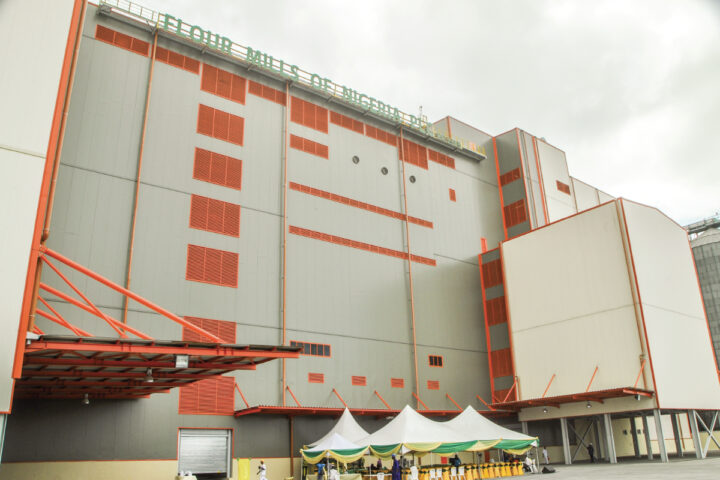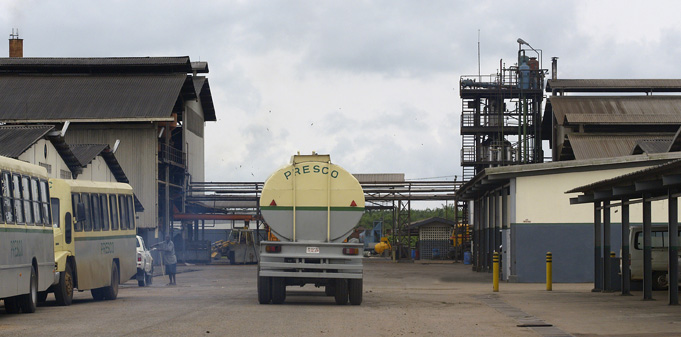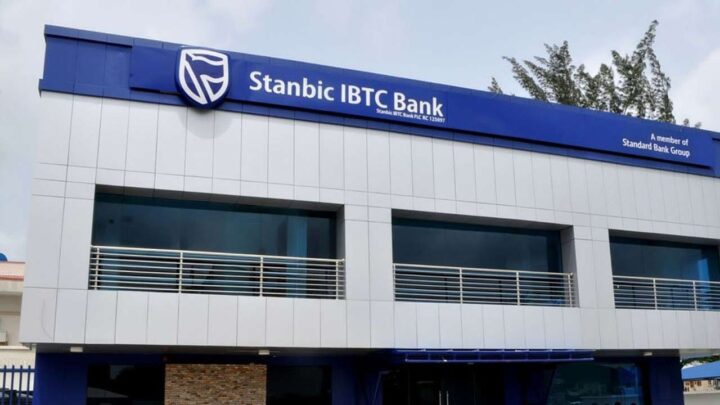Flour Mills of Nigeria Plc piled up balance sheet debts to over N322 billion as interest rates headed upwards in the Central Bank’s inflation-curbing policy thrust. Within the three months of the company’s first quarter running from April to June, its borrowing swelled by N164 billion from the closing figure of N158.7 billion at the end of its full year operations in March 2022.
The company’s first quarter interim report for the period ended June 2022 shows that interest expenses surged upward by 79 percent quarter-on-quarter to over N8 billion in reflection of both rising debts and interest rate. That consumed the entire 33 percent increase in operating profit and left pre-tax profit flat at N7.3 billion.
It grew sales by over 45 percent in the quarter to almost N340 billion, representing additional revenue of N106 billion generated within the period but inability to convert the additional earnings into profit was the problem.
The top record growth in sales was driven by improved performances across all segments – food, agro-allied, sugar and support lines and bolstered by volume growth with a favourable mix, according to the company’s report.
Advertisement
The company reported increased penetration into new and rural markets through breakfast cereals in the eastern states and Abuja as well as the implementation of innovative marketing strategies to serve the rural markets.
Investments in routes to consumer redistribution resulted in 8,000 new outlets in the first quarter while its fertilizer blending plant in Kaduna kicked off with a 90-tonne per hour capacity.
The challenge for the company is that cost grew generally to prevent revenue gains from dripping down to the bottom line. The company’s biggest cost line – input cost grew ahead of sales by over 47 percent quarter-on-quarter to over N306 billion.
Advertisement
This represents an increase of N98 billion in cost of sales, which claimed much of the N106 billion increase in sales revenue over the period. The incursion into sales limited the increase in gross profit to 29 percent to close the first quarter at a little over N33 billion.
Other cost increases squeezed margins down the line, including selling and distribution expenses that rose by one-half to N4.6 billion. An increase of 52.6 percent in administrative costs to N10 billion added to the pressure on margins.
Some relief came from a drop of 53 percent in impairment loss on trade and intercompany receivables to N659 million and a decline of 16 percent in net operating losses to N2.6 billion.
The two declining costs enabled an increase of roughly 33 percent of N3.8 billion in operating profit to over N15 billion, ahead of the 29 percent increase in gross profit.
Advertisement
Finance expenses grew by 79 percent from N3.6 billion to over N8 billion in the same period, claiming virtually the N3.8 billion increase in operating profit. That left profit for the period flat at N5.5 billion – meaning that of the N106 billion increase in sales in the first quarter, only some N50 million filtered down into the bottom line.
Flour Mills completed its acquisition of Honeywell Flour Mills Plc during the quarter and the transitional process resulted in a N1.1 billion deficit for Honeywell and N0.4 billion one-off transactional cost for Flour Mills, according to the company’s statement.
Add a comment







